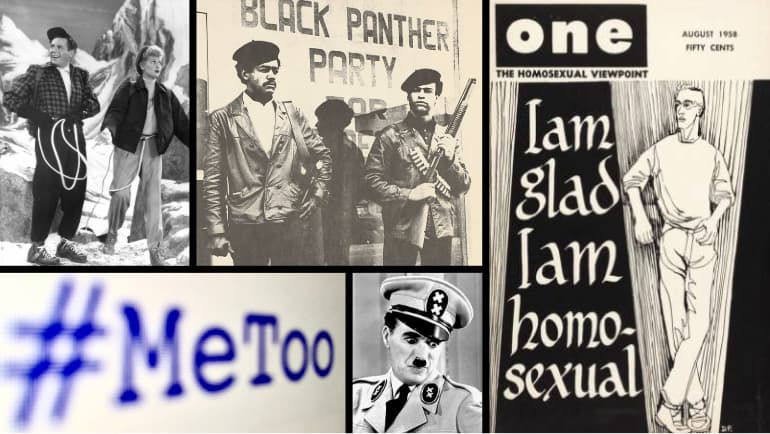Learn about progressive, intersectional events in history on October 15, in MainStream MultiMedia’s This Day in History.

1940: Charlie Chaplin becomes known as the actor that dared to mock Hitler, when he releases “The Great Dictator.” The satire mocks antisemitism, Hitler and Mussolini. Chaplin later said if he knew the true extent of the Holocaust earlier, he “… could not have made fun of the homicidal insanity of the Nazis.”
1948: Dr. Frances L. Willoughby becomes the first woman to be a doctor commissioned in the US Navy. The psychiatrist would be the only female doctor in the armed forces throughout 1949.
1951: “The pill”’ to prevent pregnancy is created in its first form by Latin American researchers Luis E. Miramontes under the direction of Carl Djerassi and George Rosenkranz at the Mexican drug company Syntex.
1952: A group that would soon publish the country’s first-ever nationwide “homosexual periodical” is formed. ONE Inc. started with members of the activist group Mattachine Society and would publish ONE Magazine from 1953 to 1967.
1957: I Love Lucy starring Lucille Ball and Desi Arnaz debuts, after opposition from CBS to an interracial couple.
1965: David Miller, 22, burns his draft card, setting him on a path to become the first person to be tried under a new law making it a federal crime to burn a draft card. He would eventually serve two years in jail.
1966: The Black Panther Party, created to promote community self-defense and counter police violence, is formed by college students and political activists Huey P. Newton and Bobby Seales.
1990: Soviet President Mikhail Gorbachev wins the Nobel Peace Prize for leadership in ending the Cold War with the United States.
1991: Clarence Thomas is narrowly confirmed by the Senate as a supreme court justice, a week after law professor Anita Hill, his special assistant from 1981-1983. accused him of sexual assault.
1993: Nelson Mandela, who spent 27 years in prison for defying apartheid, receives the Nobel Peace Prize along with South African President F. W. de Klerk for their efforts to dismantle the racial hierarchy. Mandela will go on to become South Africa’s first president after Black suffrage in 1994, a post he held until 1999.
2003: National Latino AIDS Awareness Day. happens for the first time ever, founded by the Hispanic Federation and the Latino Commission on AIDS.
2017: The #MeToo movement against sexual harassment begins, when actress Alyssa Milano tweets, “If you’ve been sexually harassed or assaulted write ‘me too’ as a reply to this tweet.” Millions of sexual assault survivors would share their own experiences, and around 200 men in powerful positions would be removed within a year.
Photos courtesy WikiMedia Commons, historical references include On This Day and Zinn Education.

